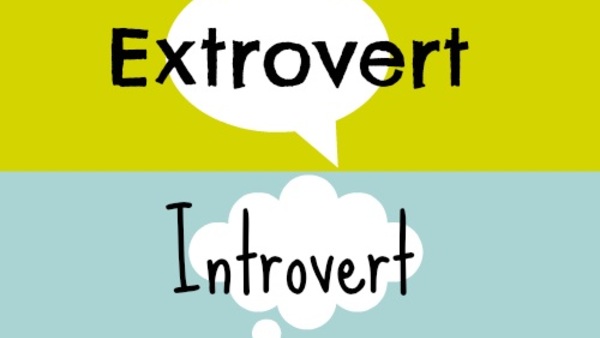
In 2012, I was invited to speak at a credit union in Michigan about different ways its staff could reach out to millennials and convince them to become members. At the time, I wrote a column for CU Times, Gen Y Back Talk, so I had researched this topic extensively. Having no public speaking experience, I was hesitant to accept, but decided to go for it. You can’t grow if you don’t step out of your comfort zone, right?
I spent hours preparing the speech. I was terrified by the idea of doing this, so I figured the more preparation the better. In the cab on the way to the airport, however, I still asked myself what the hell I was thinking.
I flew from Los Angeles to Cleveland, where I was to catch a connecting flight to Flint, Mich., take a one-hour cab ride to the town where the credit union was located, get some sleep at a hotel, and arrive at the credit union at 8 a.m. the next morning for the event.
When I landed in Cleveland and glanced at the monitor displaying the evening’s departing flights, all I saw was the word “CANCELED.” Due to bad weather, I wouldn’t be going to Flint that night, and no flights were available the next morning that would get me there in time. So, they put me up in an airport hotel and booked me on a flight back to LAX the next day. That was it. Mother Nature had its own plans, and I would not be giving a speech on millennials.
I felt terrible about disrupting the credit union’s event, but I also secretly felt a huge sense of relief that I wouldn’t have to go through with the speaking engagement. I thought maybe some divine intervention had occurred that prevented me from making a total fool of myself. I decided I wouldn’t pursue any more speaking engagements – the benefits of doing one weren’t worth the anxiety I would no doubt endure.
Still, I felt guilty about that decision. In American culture, beginning the day we first step foot in a school, we are sent the message that it’s better to be an extrovert. That if you’re an introvert, you better find a way to become more extroverted, or you’ll never succeed in your professional or social life. In classrooms, the kids who are too nervous speak up during group discussions are told they need to come out of their shell and “contribute more.” This carries into the workplace too, where at staff meetings, the person who talks the most usually gets the most positive attention, even if their ideas suck. Choosing not to do something that an extroverted person could likely do without a problem felt satisfying, but I still viewed it as a strike against me.
I changed my perception entirely after reading the book Quiet: The Power of Introverts in a World That Can’t Stop Talking by Susan Cain. The book explores why the leaders of U.S. schools and businesses are so obsessed with extroverted behavior and often make the “quiet ones” feel they are falling behind. It makes the argument that introverts are in no way “below” or doomed to be less successful than extroverts; in fact, their carefully-thought-out communication methods can lead to great success in their professional lives.
Today’s workplace culture favors extroverted personalities. Everything is about collaboration and teamwork, and office layouts force employees into each other’s faces. Many companies embrace open floor plans, and the square footage of workspace per employee has dwindled by several hundred square feet since the 1970s, according to Cain’s book. Cain calls this workplace trend, also popular in schools, the New Groupthink, “a phenomenon that has the potential to stifle productivity at work and to deprive schoolchildren of the skills they’ll need to achieve excellence in an increasingly competitive world.” She added, “It insists that creativity and intellectual achievement come from a gregarious place.”
A Washington Post writer also argued against office floor plans that rip privacy from employees. In “Google Got it Wrong. The Open-Office Trend Is Destroying the Workplace,” Lindsey Kaufman revealed that while 70% of U.S. offices have low or no partitions, a study found nearly half of surveyed workers said the lack of sound privacy was a significant problem, more than 30% complained about the lack of visual privacy and those with private offices were in fact least likely to have an issue communicating with other employees. Consider that if you’re thinking about making your credit union’s headquarters look more like Facebook’s.
Kaufman noted that if an open floor plan is still a go, it’s important to include private spaces and lay down some rules in the open space (for example, if a worker has headphones on, send them an email instead of interrupting them). Working from home should be permitted as an option, too, she said.
Since too much human interaction can be draining for introverts, leaving them with less energy to produce good work, they’re likely to loathe open floor plans. Regular communication with colleagues is important, but they also need quiet, private time to think, analyze and create. I know this because after a day packed with meetings, phone calls and in-person interruptions at my cubicle in an office setting, I am wiped and not likely to have gotten any real work done, whereas working from home allows me to be more productive than ever.
Credit union managers will work above all types of personalities, including many introverts. In addition to frowning upon the open-office trend, there are things they can do to help them shine, according to Cain’s book. First, ask them to come up with creative ideas alone before presenting them to a group. Second, arrange for people to interact one-on-one and in small groups. Third, don’t assume that just because someone is assertive and eloquent, their ideas are genius. “Make the most of introverts’ strengths – these are the people who can help you think deeply, strategize, solve complex problems and spot canaries in your coal mine,” she wrote.
Finally, encourage employees to explore their passions. One of the key takeaways I got from Cain’s book is that when introverts immerse themselves in an activity or topic they love, they have the power to exhibit extrovert-like qualities. Perhaps if my credit union talk had been on wine, not millennials, my nerves wouldn’t have gotten the best of me and the skies would have been clear in Michigan that day.
 Natasha Chilingerian is managing editor for CU Times. She can be reached at nchilingerian@cutimes.com.
Natasha Chilingerian is managing editor for CU Times. She can be reached at nchilingerian@cutimes.com.


